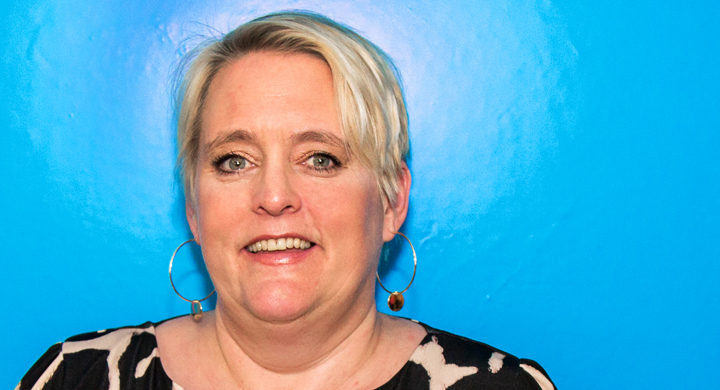AIDS 2020: The forgotten pandemic?

Our Executive Director, Christine Stegling, reports back from a subdued International AIDS Conference.
Every two years the HIV community comes together at the International AIDS Conference to learn, reflect and strategise.
In recent years, many in the movement have questioned whether these big global events, with several thousand people adding to the carbon footprint and spending scarce resources, were worth it. After all, we know that the biggest barriers to ending AIDS are about inequality.
Economic disparities, gender-based violence, racial discrimination and human rights violations against key populations all drive HIV, but they can’t be addressed by the HIV sector on our own. We need to reach out to people outside our sector and for that, we need an AIDS Conference that can mobilise multi-sectoral, cross movement thinking and resourcing.
But we also need a conference that remains true to our values. In hosting AIDS 2020 in San Francisco, the International AIDS Society were accused of excluding many of the people that our movement exists to serve. The US has always been a hostile environment for people of colour, but that hostility has deepened in recent years to the extent that many people from the countries most affected by HIV do not feel safe travelling to Trump’s America.
For key populations there were safety and immigration concerns too, but also points of principle. Why would LGBT activists travel, especially in election year, to a country where the Head of State finds political capital in being openly homophobic and anti-trans? Why would people who use drugs risk detention at the border to go somewhere with an overdose crisis that is killing their communities faster than AIDS ever did? Better, these communities decided, to reclaim the HIV response, with HIV 2020, an alternative, community led meeting that would happen at the same time.
And then a new pandemic hit the world and once again we were reminded of why Trump’s America is not a safe place. The AIDS conference now moved online and announced a special segment on COVID-19. At Frontline AIDS we decided that it was important to participate because this was going to be the moment to sound the alarm. To shine a spotlight on the danger that all of the progress we have made in recent years to tackle the global HIV pandemic is at risk of going into reverse.
But although we rang the alarm bells loud and clear, it seemed like no one outside woke up. There was hardly any news coverage of the conference. A hard hitting report by UNAIDS that clearly stated our failure to reach existing global targets on AIDS, most shockingly on HIV prevention, went unnoticed. Equally modelling warning of a possible additional 500,000 people dying of AIDS related illnesses due to disruptions because of COVID-19 went unnoticed. In that sense the conference didn’t do what we had hoped it would.
This might just be the trajectory that we are on now, with HIV funding declining three years in a row and likely to be further hard hit because of COVID-19. Some donors at AIDS 2020 clearly noted that we need to safeguard HIV resources and argued that what is most needed right now is to allocate additional resources to health overall. But already some donor nations are reducing their development budgets. Last week the UK Government announced plans to cut overseas development assistance by £2.9 billion, and although the Foreign Secretary emphasised that poverty reduction, girls’ education and the COVID-19 response would be continued priorities, he made no mention of HIV or even health. As so many of us argued at AIDS 2020, it would be extremely short-sighted if, in responding to one pandemic, donors inadvertently risk lives in another.
But there were also inspiring voices at the conference, including at our own online events. Speaking with new energy, we heard activists and community leaders urge us to use the current crisis as an opportunity to re-think how society works, to acknowledge that structural injustices, economic disparities, structural racism and misogyny have determined who is most affected by HIV and also by COVID-19.
We also heard about adaptations happening as a result of the COVID-19 crisis, with many countries now prescribing anti-retroviral medicines for longer periods, allowing clients to minimise costly trips to clinics and saving health facilities much-needed time and human resources. We also heard how people who have use drugs have finally been able to negotiate take-home methadone, an innovation that they have been advocating for years, against a wall of prejudice that normally requires people with opioid dependency to return to OST clinics every day, instead of trusting them to manage their own treatment at home. And, we heard about many innovative community interventions, providing mobile and virtual HIV services to the people who are often hardest to reach. Glimpses of a new world.
It was also incredibly encouraging to hear global leaders, such as Winnie Byanyima and Peter Sands recognise the vital contribution that communities are making to support fragile health systems in the COVID-19 response. Something that we, as the Frontline AIDS partnership know well, but that didn’t get the prime-time discussion it deserves.
We know that communities have to be a central and well-resourced part of the public health system, that it is those most affected that can make the biggest difference and that human rights violations need to be addressed to make real progress in reducing new infections and mortality. The UNAIDS data shows that we are far from ending AIDS and that this is the moment to support communities with the resources, information and the personal protective equipment that they need to continue fighting HIV and to respond to COVID-19.
Tags
AdvocacyCOVID-19HIV prevention

